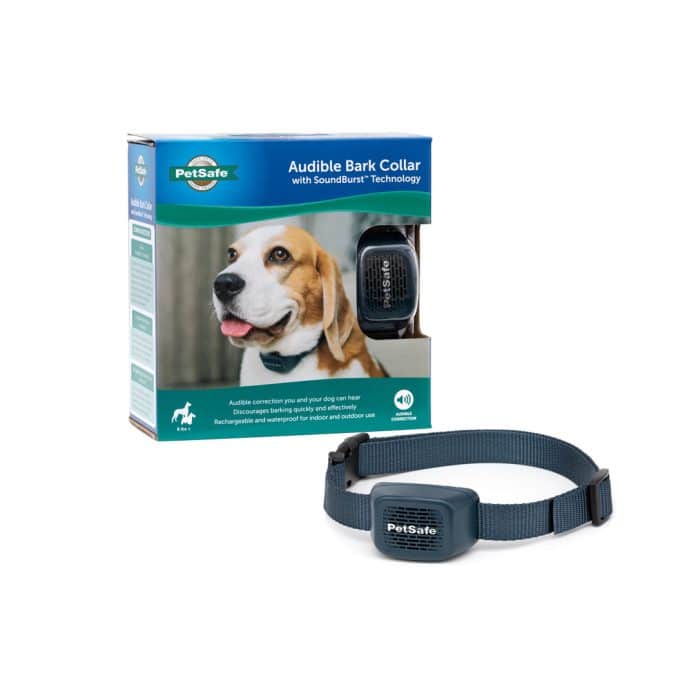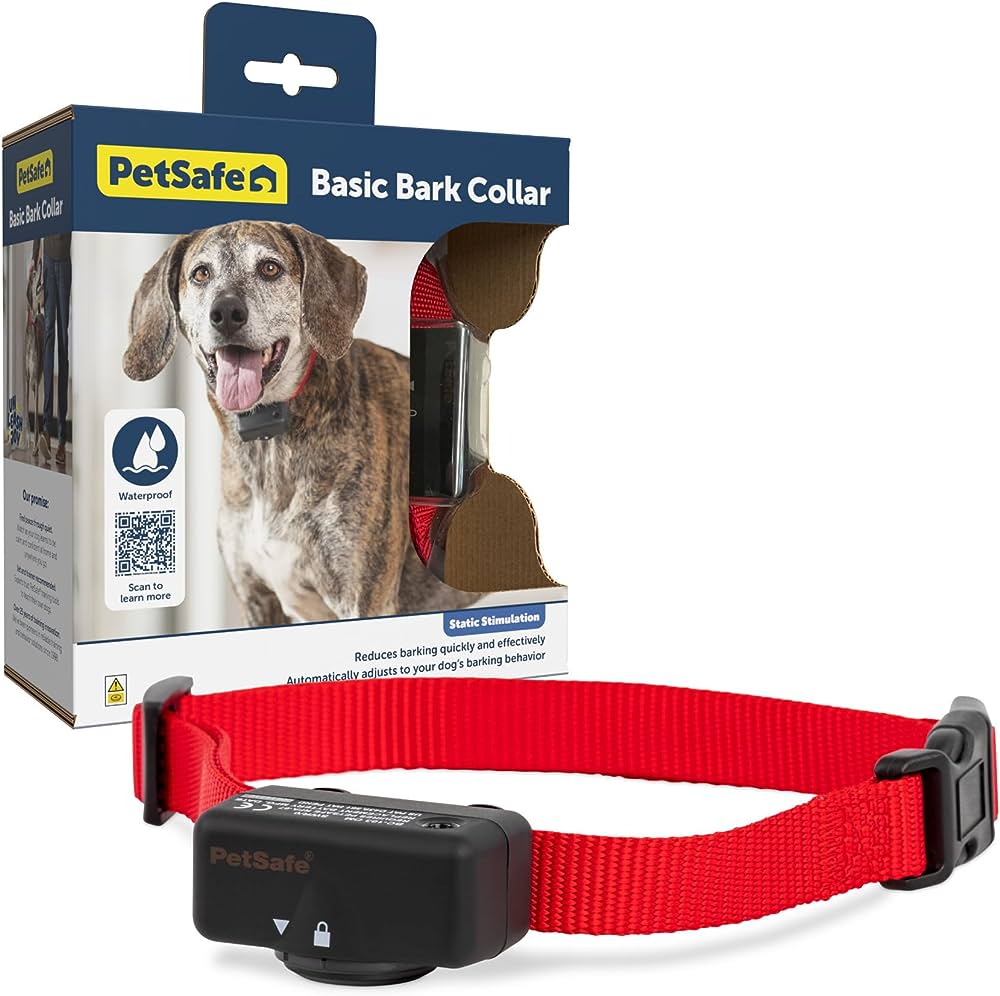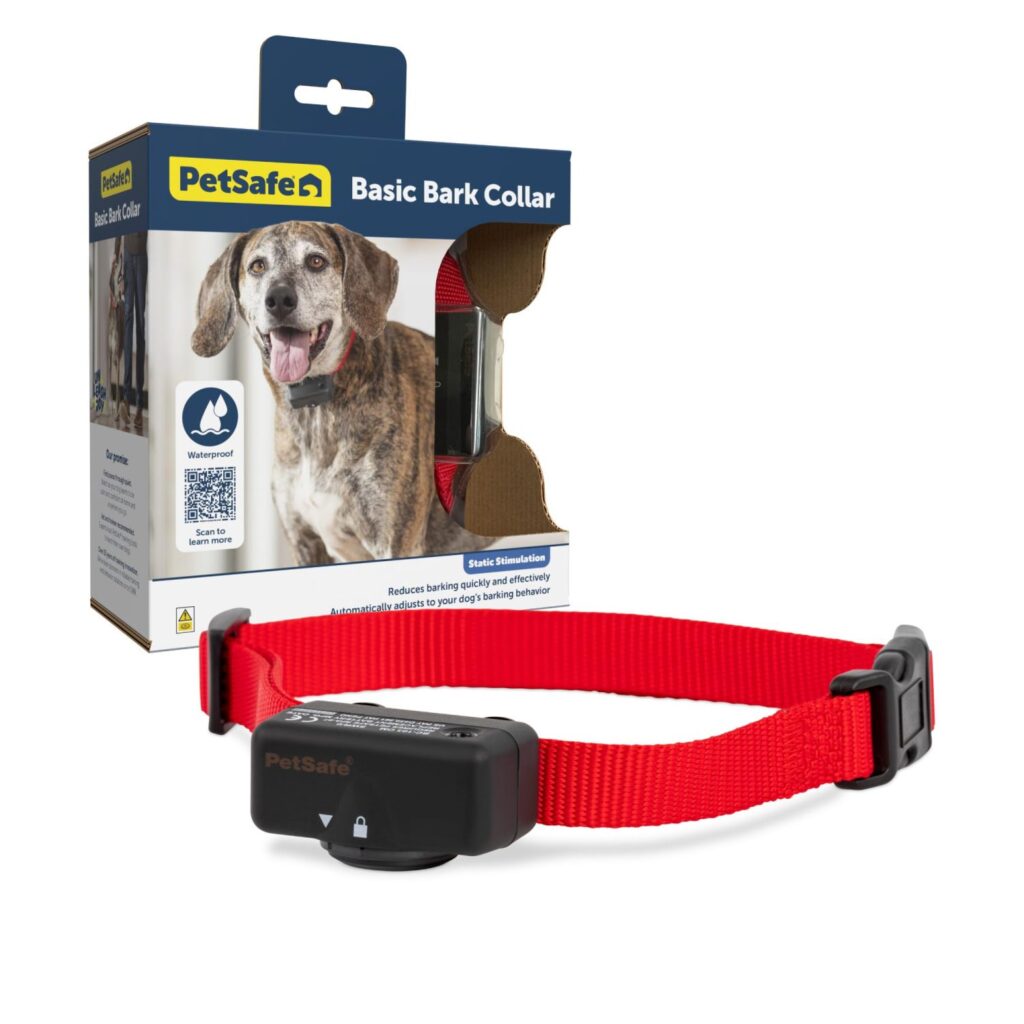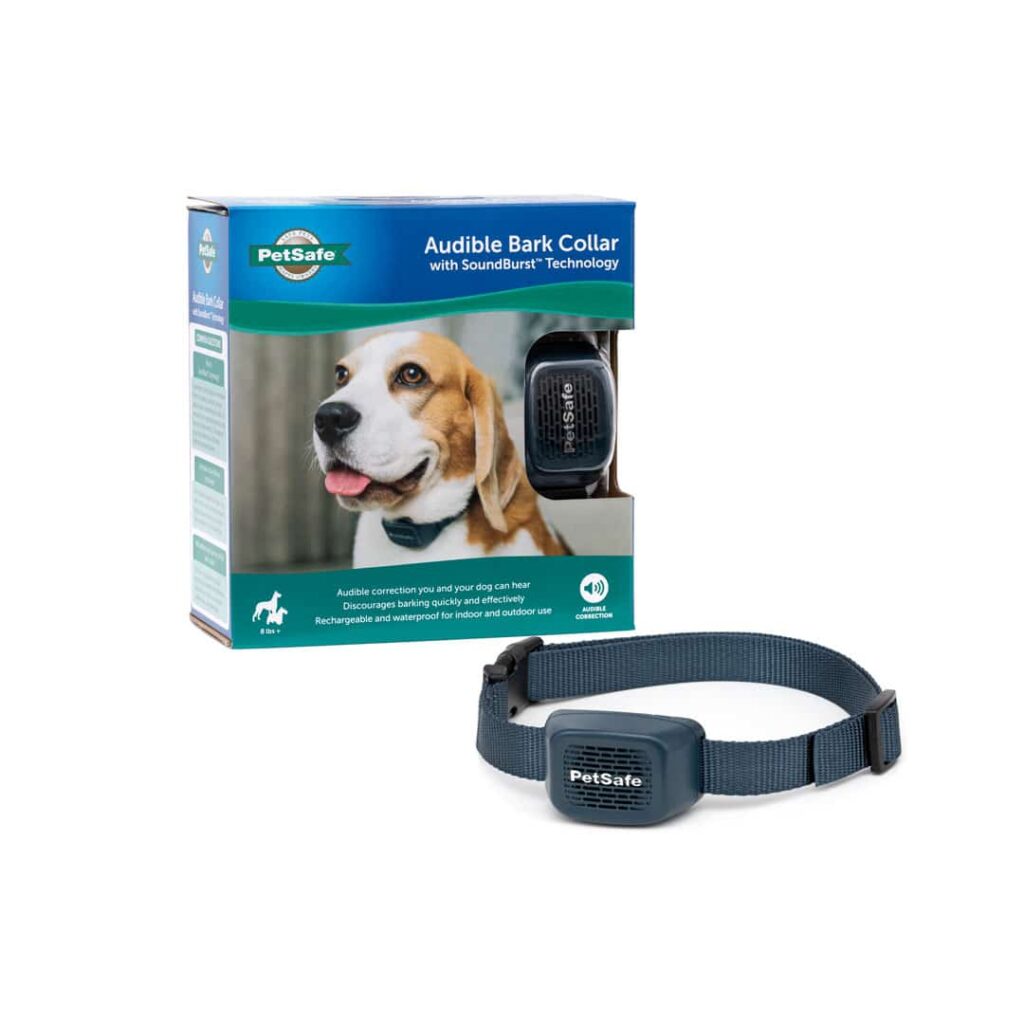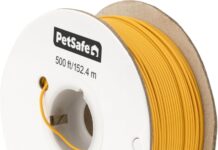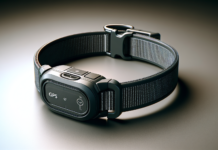Curiosity about the safety of bark collars for our beloved dogs is common among pet owners. We all want what’s best for our furry friends, but are bark collars safe and effective solutions for excessive barking?
In this article, we will explore the potential risks and benefits of bark collars to comprehensively understand whether these devices could be a suitable choice for your four-legged companion.
This image is the property of Amazon.com.
What Are Bark Collars?
Bark collars are devices designed to help control excessive barking in dogs. They are usually worn around the neck like a regular collar and emit a stimulus, such as vibration, sound, or mild electric shock, when the dog barks. The idea behind bark collars is to teach dogs that barking is undesirable and encourage them to stop excessively.
Types of Bark Collars
There are several types of bark collars available on the market today. The most common ones include:
- Static Bark Collars deliver a mild electric shock to the dog’s neck when it barks. The shock is not intended to harm the dog but to startle it and discourage further barking.
- Vibration Bark Collars: Instead of using electric shocks, vibration Bark collars vibrate gently when the dog barks. This sensation is usually enough to interrupt the barking behavior.
- Ultrasonic Bark Collars: These collars emit a high-frequency sound that is inaudible to humans but annoying to dogs. The dog’s barking triggers the sound and aims to distract and discourage the barking behavior.
How Do Bark Collars Work?
Bark collars are designed to detect the vibrations of a dog’s vocal cords when it barks. Once the vibration is detected, the collar activates a stimulus, a vibration, sound, or electric shock. This stimulus interrupts the dog’s barking and teaches it to associate barking with an unpleasant consequence.
Benefits of Using Bark Collars
Effective Training Tool
Bark collars can be an effective training tool when used correctly. They provide immediate feedback to the dog, helping it understand that barking excessively is unwanted behavior. With consistent use and proper training techniques, bark collars can help curb excessive barking and promote better dog behavior.
Convenient and Time-Saving
Using a bark collar saves time and effort compared to other training methods. Instead of constantly monitoring and correcting your dog’s barking, a bark collar can automatically stop the excessive barking and allow you to focus on other tasks or enjoy a peaceful environment.
User-Friendly
Most bark collars are designed to be user-friendly, with easy-to-understand instructions and adjustable settings. They are typically lightweight and comfortable for dogs, ensuring the training experience is as stress-free as possible.
Potential Risks and Side Effects
While bark collars can be beneficial, it’s essential to consider the potential risks and side effects associated with their use.
Physical Discomfort
Some dogs may experience physical discomfort when wearing a bark collar, mainly if it delivers electric shocks or tightens around the neck. Choosing a collar that fits appropriately and at the appropriate correction level is crucial to minimize potential discomfort.
Psychological Impact
Bark collars that deliver aversive stimuli can potentially have a negative psychological impact on dogs. It’s essential to monitor your dog’s behavior and ensure that it does not become fearful or anxious due to the collar’s use. If you notice any adverse changes in your dog’s behavior, it may be necessary to discontinue using the bark collar.
Skin Irritation or Allergies
Depending on the material and design of the bark collar, some dogs may develop skin irritation or allergies. It’s essential to regularly check your dog’s neck for any signs of redness, sores, or rashes. If these symptoms occur, discontinue use and consult with a veterinarian.
Ineffectiveness for Certain Breeds
Not all dogs respond the same way to bark collars. Some breeds may be less responsive to the stimuli delivered by the collar, making it less effective as a training tool. It’s essential to consider your dog’s breed and individual temperament when deciding whether to use a bark collar.
Choosing the Right Bark Collar
When selecting a bark collar, several factors must be considered to ensure you choose the right one for your dog.
Consider Your Dog’s Size and Breed
Different bark collars are designed for dogs of different sizes and breeds. Choosing a collar appropriate for your dog’s size and considering any breed-specific considerations is essential.
Select the Appropriate Correction Level
Most bark collars offer multiple correction levels. Choosing the right level that effectively discourages excessive barking without causing unnecessary discomfort to your dog is crucial. Start with the lowest level and gradually increase it if necessary, constantly monitoring your dog’s response.
Evaluate the Collar’s Features
Each bark collar may come with different features, such as adjustable sensitivity settings or a remote control. Evaluate these features to ensure they align with your training needs and preferences.
Consult a Professional Trainer or Veterinarian
If you’re unsure which bark collar to choose or how to use it correctly, consult a professional dog trainer or veterinarian. They can provide valuable guidance and ensure you make an informed decision for your dog’s well-being.
This image is the property of Amazon.com.
Alternatives to Bark Collars
If you’re hesitant to use a bark collar or would like to explore other options, there are alternative methods to consider.
Positive Reinforcement Training
Positive reinforcement training involves rewarding desired behaviors and ignoring or redirecting unwanted behaviors, such as excessive barking. With consistency and patience, positive reinforcement can effectively train your dog to bark less.
Anti-Barking Devices
There are various anti-barking devices available on the market that do not require direct contact with the dog. These devices, such as ultrasonic sound emitters or citronella spray collars, aim to deter barking without causing discomfort or harm to the dog.
Behavioral Modification Techniques
Working with a professional dog trainer experienced in behavioral modification can help address the underlying reasons behind excessive barking. They can develop a personalized training plan targeting the specific behaviors causing the barking and help your dog learn alternative behaviors.
Ensuring Safety While Using Bark Collars
When using a bark collar, it’s essential to prioritize your dog’s safety and well-being.
Proper Fit and Positioning
Ensure the bark collar fits securely but comfortably around your dog’s neck. Avoid too tight collars, as they can cause discomfort or restrict breathing. Regularly check the fit and adjust as necessary, especially as your dog grows.
Regular Monitoring and Adjustment
Monitor your dog’s behavior closely when using a bark collar. Observe any changes in their barking patterns and adjust the correction level or training approach accordingly. Regularly check your dog’s neck for any signs of discomfort or irritation.
Use Under Supervision
Always supervise your dog wearing a bark collar to ensure their safety. Avoid leaving the collar on for extended periods, especially when you are not around to monitor your dog’s behavior.
Take Breaks from Collar Usage
Removing it during rest periods or when engaging in activities where barking is expected, such as playtime or walks, is recommended to give your dog breaks from wearing the bark collar.
This image is the property of Amazon.com.
Understanding Legal and Ethical Considerations
Before using a bark collar, it’s essential to familiarize yourself with the legal and ethical considerations regarding their usage.
Legality of Bark Collars in Certain Areas
Some areas may have specific regulations or restrictions regarding using bark collars. Researching and understanding the laws in your region is essential to ensure compliance and avoid any legal consequences.
Controversies and Ethical Concerns
There are ongoing debates surrounding the use of bark collars. Some animal welfare organizations and trainers argue that these devices can cause unnecessary stress or harm to dogs. Considering these ethical concerns and weighing them against the potential benefits before using a bark collar is essential.
Consulting with Professionals
To make an informed decision about using a bark collar, it’s advisable to seek advice from professionals in the field.
Seek Advice from a Professional Trainer
Consulting with a professional dog trainer specializing in behavior modification can provide valuable insights into whether a bark collar suits your dog and how to use it effectively. They can guide you through the training process and help you address any concerns.
Consult with a Veterinarian
Your veterinarian is also a valuable resource when considering a bark collar. They can evaluate your dog’s overall health and behavior and provide advice specific to your dog’s individual needs and circumstances.
This image is the property of d31omju6te34uu.cloudfront.net.
Real-Life Experiences and Testimonials
To gain further insight into the effectiveness and potential drawbacks of using bark collars, reading real-life experiences and testimonials from other dog owners can be helpful.
Stories of Successful Bark Collar Usage
Many dog owners have successfully used bark collars to effectively reduce excessive barking in their dogs. They share stories of how their dogs have learned to bark less and exhibit improved behavior due to using a bark collar.
Personal Accounts of Negative Experiences
There are also personal accounts from dog owners who have had negative experiences or encountered challenges using bark collars. These accounts shed light on potential issues to consider and provide a balanced perspective on using bark collars.
Conclusion
In conclusion, bark collars can be a valuable tool in addressing excessive barking in dogs. Still, they should be used with caution and consideration for each dog’s individual needs and well-being.
They can be effective in training dogs to reduce excessive barking. Still, it’s essential to chooseae a suitable collar, use it correctly, and prioritize the safety and comfort of your dog. Alternatives such as positive reinforcement training, anti-barking devices, and behavioral modification techniques are also worth exploring.
By consulting professionals and understanding the legal and ethical considerations, you can decide whether a bark collar is the right solution for your dog’s excessive barking.
This image is the property of www.crosspaws.com.au.

